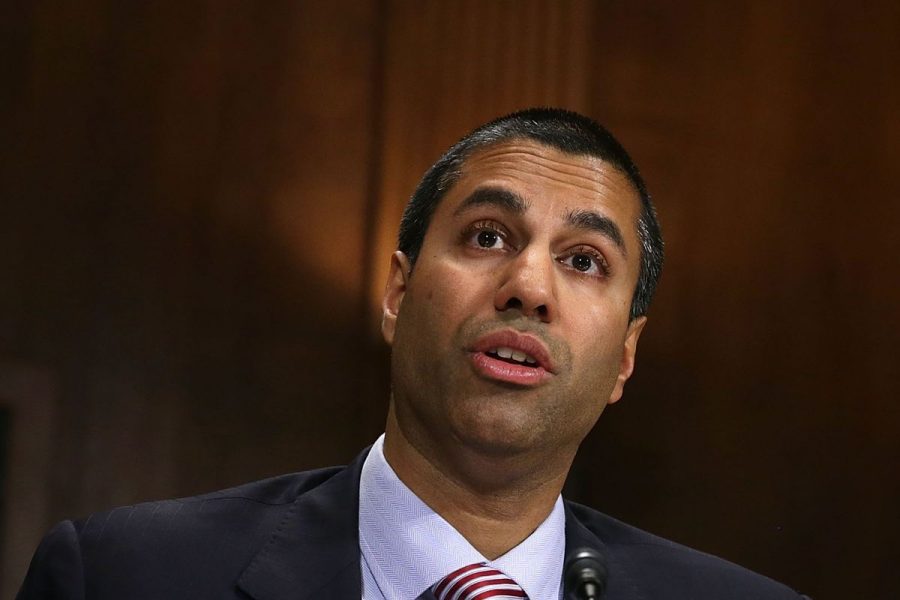The FCC’s Decision on Net Neutrality
FCC’s Chief Ajit Pai’s stance on net neutrality could change the nature of the internet.
Dec 16, 2017
The Trump administration’s chairman of the Federal Communications Commission (FCC), Ajit Pai, is seeking to change the very nature of the internet. Net Neutrality rules, established in 2015, may be in danger, as Pai seeks to repeal them and give internet users less control.
In 2015, the FCC passed Title II of the Communications Act. Title II established rules that closely regulate Internet Service Providers (ISPs)— companies such as AT&T, Comcast and Verizon— that make money by providing internet service. Title II established Net Neutrality rules, which prohibit ISPs from altering the speeds that they deliver data with. Under these rules, all data on the internet must be treated equally, delivered at the same speed. Without this rule, large businesses would be allowed to pay ISPs for increased speeds, and ISPs would be allowed to reduce internet speeds to any website they want— the website of a competing ISP, for example. Title II was passed to stop this unregulated slowing and acceleration of internet data.
Opponents of Net Neutrality rules do not believe the regulations on ISPs are necessary. People opposed to the Title II regulations are generally more economically conservative. They generally cite how competitive the internet service market is, and argue that competition between ISPs would prevent the slowing of data speeds, because ISPs would be pressured to maintain high speeds in order to retain customers. Therefore, as there is already motivation for ISPs to treat data equally, putting these regulations into law is unnecessary, and may hinder potential economic growth.
Along with several high-profile speakers like Bob Kahn, one of the inventors of the internet, and Mark Cuban, a famous multi-million dollar investor and political commentator, the FCC chairman Ajit Pai supports the revocation of these regulations, a change which would fundamentally alter the Internet. Pai has been Chairman of the FCC since Jan 23, appointed immediately after Trump took office. Since then, Pai has been on an anti-Net-Neutrality campaign. His latest attempt to revoke Net Neutrality, through the proposed nullification of Title II, was put forth on Tuesday, Nov 21. A vote by the FCC on Pai’s Net-Neutrality-revoking plan took place on Dec. 14, and it passed 3-2, meaning that the next step is just to sit back and watch the repeal of Title II rules.
Despite the large pushback from various Net Neutrality advocacy groups, such as Battle For the Net and Save the Internet, the removal of Title II and the nullification of Net Neutrality rules is simply a matter of time. The modified rules simply needed to be added to the federal register, which could take several months. The fight may not yet be over— though the GOP controls both houses of the legislature, and Republicans generally are opposed to Net Neutrality, the 2018 midterm elections may give Net Neutrality proponents a change to put people opposed to repealing the rules into power. Until these elections take place nearly a year from now, however, it looks as if the Internet’s power will largely leave the hands of the users and shift to the hands of big companies.













